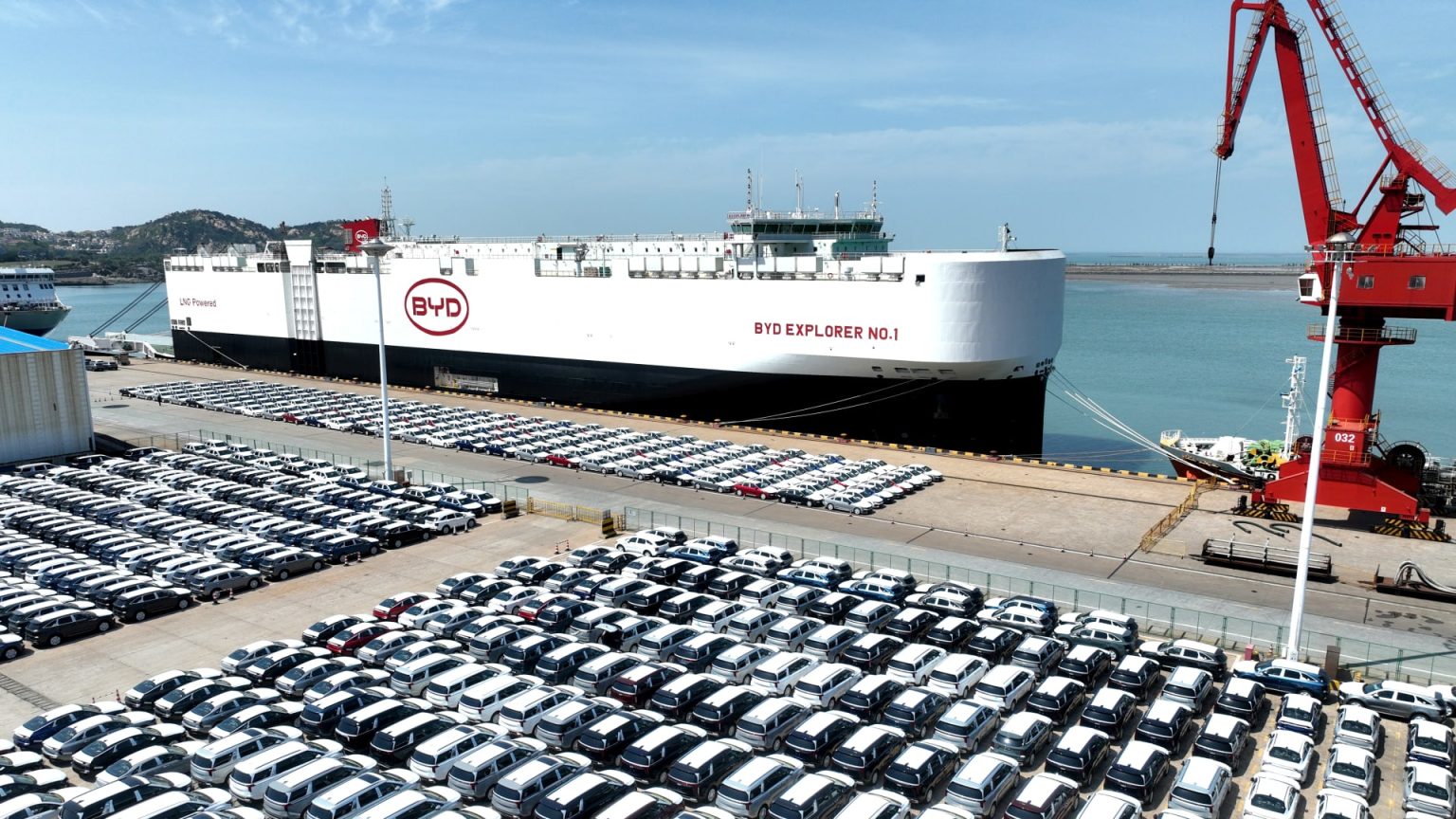Automotive companies in China outsold their U.S. counterparts for the first time, with Chinese brands, led by BYD, selling 13.4 million new vehicles compared to American brands selling 11.9 million. Japanese brands led with 23.59 million sales. Sales growth in China outpaced the U.S., with a 23% increase compared to 9% in the U.S. Chinese automakers have expanded globally, with BYD leading the charge. The growth in Chinese car sales has been driven by affordable prices and increased demand in emerging markets.
Chinese car brands have made significant inroads in emerging economies, where one in five new car sales were made last year. Chinese car makers gained market share across the Middle East, Eurasia, Africa, Latin America, and Southeast Asia, while also posting growth in developed economies like Europe, Australia, New Zealand, and Israel. Despite trade animosity between China and the West and other challenges, the industry saw growth across regions, except for Africa. Europe experienced the fastest growth due to booming demand in Turkey.
However, the automotive industry faces increased trade headwinds in 2024, with more countries enacting measures to protect their local industries from cheap Chinese exports. The EU announced an increase in tariffs on Chinese EVs up to 38%, while the U.S. quadrupled tariffs on Chinese EVs to 100%. Turkey also imposed 40% additional tariffs on vehicles from China, indicating that other emerging markets may follow suit. This poses a challenge to Chinese car makers as they navigate trade tensions and protect their market share.
Chinese car brands have been able to gain market share globally by offering affordable alternatives to legacy automakers who have consistently high car prices. BYD and other Chinese brands have benefited from an electric-vehicle price war at home that has pushed down prices and weighed on profit margins. This has driven consumers towards more affordable Chinese alternatives, leading to increased sales in both emerging and developed economies. The growth in Chinese car sales comes despite conflicts in Europe, high interest rates, and high vehicle prices.
Chinese car makers have successfully expanded their presence globally, with BYD leading the way. The growth in Chinese car sales reflects a shift in consumer preference towards more affordable options offered by Chinese brands. Despite challenges like trade tensions and increased tariffs on Chinese exports, Chinese car brands have maintained their market share and continue to post growth in various regions. The industry will need to navigate these trade headwinds in 2024 and adapt to changing market dynamics to sustain their growth in the global automotive market.












